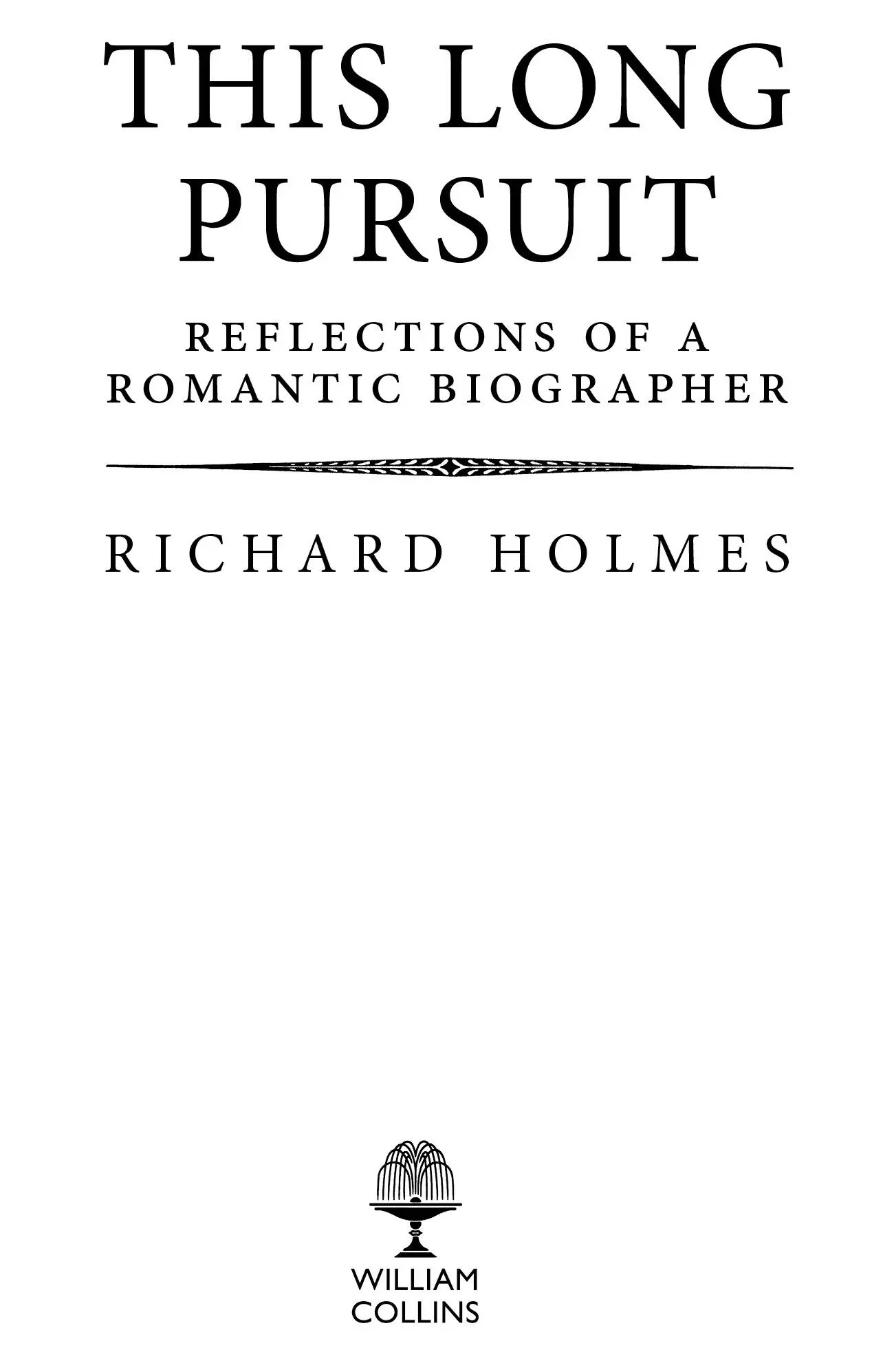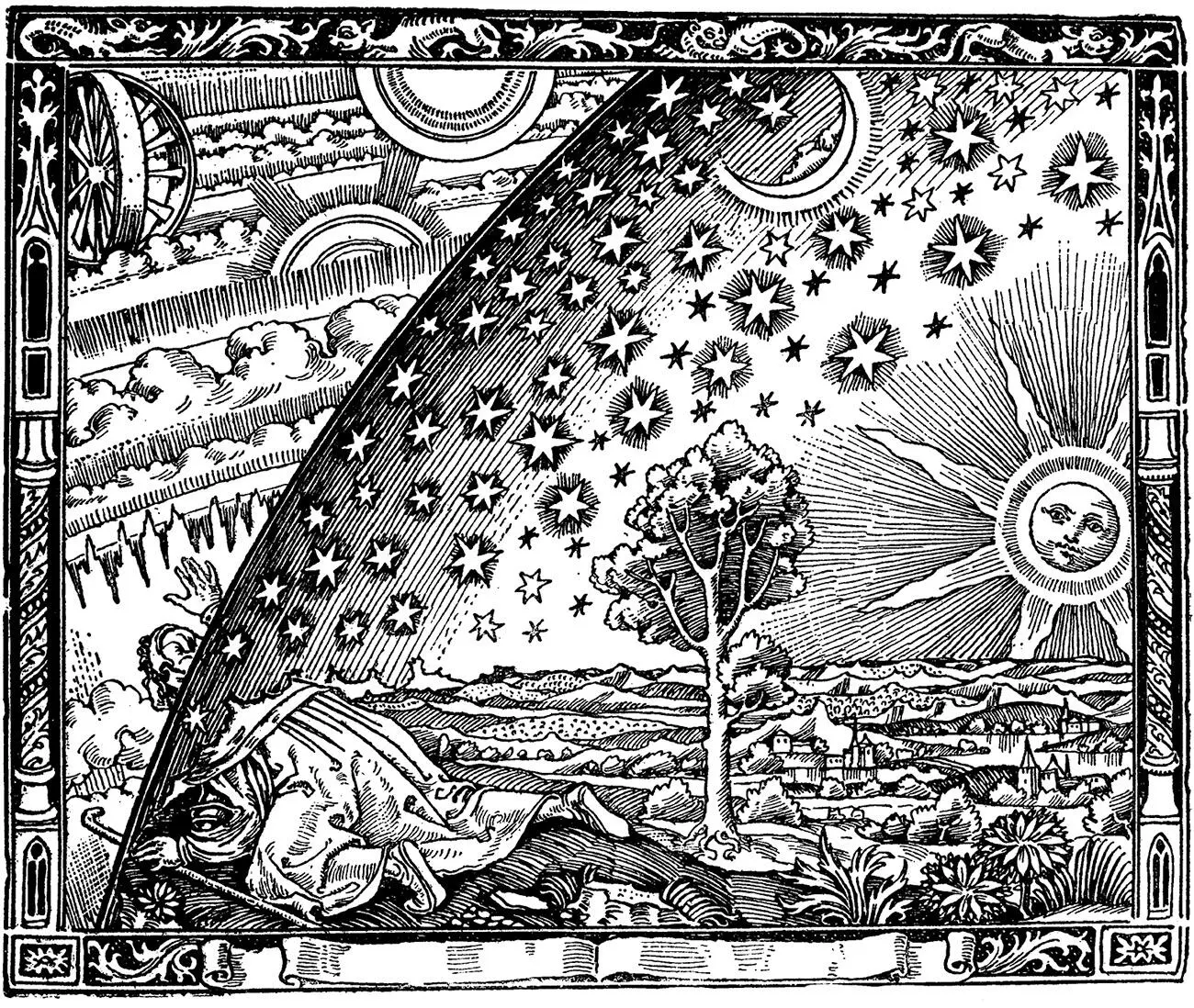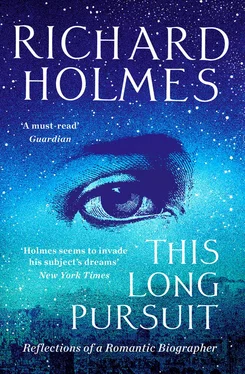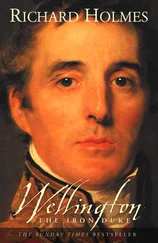
William Collins
An imprint of HarperCollins Publishers
1 London Bridge Street
London SE1 9GF
WilliamCollinsBooks.com
This eBook first published in Great Britain by William Collins in 2016
Copyright © Richard Holmes 2016
The author asserts the moral right to be identified as the author of this work
A catalogue record for this book is available from the British Library
Cover image © shutterstock.com (eye)
Cover design by Heike Schüssler
All rights reserved under International and Pan-American Copyright Conventions. By payment of the required fees, you have been granted the non-exclusive, non-transferable right to access and read the text of this e-book on screen. No part of this text may be reproduced, transmitted, down-loaded, decompiled, reverse engineered, or stored in or introduced into any information storage and retrieval system, in any form or by any means, whether electronic or mechanical, now known or hereinafter invented, without the express written permission of HarperCollins.
Source ISBN: 9780008168728
Ebook Edition © October 2016 ISBN: 9780008168711
Version: 2017-09-06
To Arabella Pike
my wonderful editor for more than twenty years
Cover
Title Page
Copyright
Dedication
CONFESSIONS
1 Travelling
2 Experimenting
3 Teaching
4 Forgetting
5 Ballooning
RESTORATIONS
6 Margaret Cavendish
7 Zélide
8 Madame de Staël
9 Mary Wollstonecraft
10 Mary Somerville
AFTERLIVES
11 John Keats the Well-Beloved
12 Shelley Undrowned
13 Thomas Lawrence Revarnished
14 Coleridge Misremembered
15 William Blake Rediscovered
Acknowledgements
List of Illustrations
Picture Section
Index
About the Author
Also by Richard Holmes
About the Publisher
CONFESSIONS
1

Every so often I close one of my working notebooks (there are nearly two hundred of them now, dating from 1964, the earliest in soft blue crumpled cardboard from Woolworths, the most recent in glossy black spiral-bound A5 hardback, from Black n’ Red) and begin to reflect on the whole journey, and the time left, and what if anything I have learned along the way. I look back at the highways and byways of biography, my own Footsteps and my Sidetracks , and most of all on my strange, unappeased sense of some continuous, intense and inescapable pursuit.
I remember, for instance, the early summer of 1974, when I had just finished my first book, a biography of the Romantic poet Percy Bysshe Shelley. It was eight hundred pages long and I was nearly thirty. I had travelled in England, Scotland, Ireland, France and Italy in search of my fiery, footloose poet. I felt like a veteran after a long campaign in the field. I felt grizzled, anecdotal, displaced. What’s more, I found that I had returned with two conclusions about writing biography that were certainly not taught back home in academia.
The first was the Footsteps principle. I had come to believe that the serious biographer must physically pursue his subject through the past. Mere archives were not enough. He must go to all the places where the subject had ever lived or worked, or travelled or dreamed. Not just the birthplace, or the blue-plaque place, but the temporary places, the passing places, the lost places, the dream places.
He – or she – must examine them as intelligently as possible, looking for clues, for the visible and the invisible, for the history, the geography and the atmosphere. He must feel how they once were; must imagine what impact they might once have had. He must be alert to ‘unknown modes of being’. He must step back, step down, step inside the story.
The second was the Two-Sided Notebook concept. It seemed to me that a proper research notebook must always have a form of ‘double accounting’. There should be a distinct, conscious divide between the objective and the subjective sides of the project. This meant keeping a double-entry record of all research as it progressed (or as frequently, digressed). Put schematically, there must be a right-hand side and a left-hand side to every notebook page spread.
On the one (the right) I would record the objective facts of my subject’s life, as minutely and accurately as possible (from the letters, the diaries, the memoirs, the archives). But on the other (the left) I would also record my most personal responses, my feelings and speculations, my questions and conundrums, my difficulties and challenges, my travels and my visions. Irritation, embarrassment, puzzlement or grief could prove as valuable as excitement, astonishment, inspiration or enthusiasm. The cumulative experience of the research journey, of being in my subject’s company over several years, thus became part of the whole biographical enterprise. Only in this way, it seemed to me, could I use, but also hope to master, the biographer’s most valuable but perilous weapon: empathy.
One incident from long before the Shelley days, during my novice pursuit of Robert Louis Stevenson in the Cévennes a decade previously, became an unlikely talisman. It never got into Footsteps , but lay quietly on the left-hand page of my very first notebook for over twenty years. Only much later, when I began to lecture about biography, did I find myself unexpectedly retelling it. To my surprise, it went through various versions, until it had finally metamorphosed from a traveller’s tale into a kind of biographer’s parable. In its developed form it went like this.
I first explained that I was eighteen, and in following Stevenson through the wild Cévennes, I usually slept out deliberately like him under the stars, in a small sleeping bag without a tent, à la belle étoile . But sometimes I was reluctantly forced (by the spectacular Cévennes storms) to spend a night at one of the little remote country inns or hostels. In those days you had to present a passport to be entered in the fichière , with your name, age and occupation included in the details. Under occupation, I had specified with great optimism ‘Writer’. Of course I had published absolutely nothing at that point.
When I handed over my passport to Madame at the reception desk, the same thing always seemed to happen. ‘Ah, Monsieur ’Olmez,’ she would exclaim grimly as she filled in the little buff index card, ‘I see you are a waiter.’ I reflected painfully on this for some days, and then thought of putting in ‘Travel Writer’. But then I could immediately hear the even grimmer response. ‘Ah Monsieur ’Olmez, I see you are a table waiter.’
This tale, suitably embellished with Gallic accents and hand gestures, became known as my ‘travelling waiter joke’. Yet it gradually revealed to me a serious lesson in professional humility. Because in a sense that’s exactly what a biographer is: someone who waits, who awaits , who pays attention, who is constantly alert, who attends upon his subjects, who is at their service for a long period of faithful employment. Waiting done well, I reflected, involves a lot of legwork.
Читать дальше














